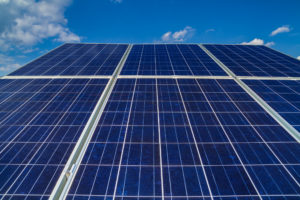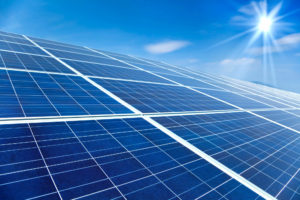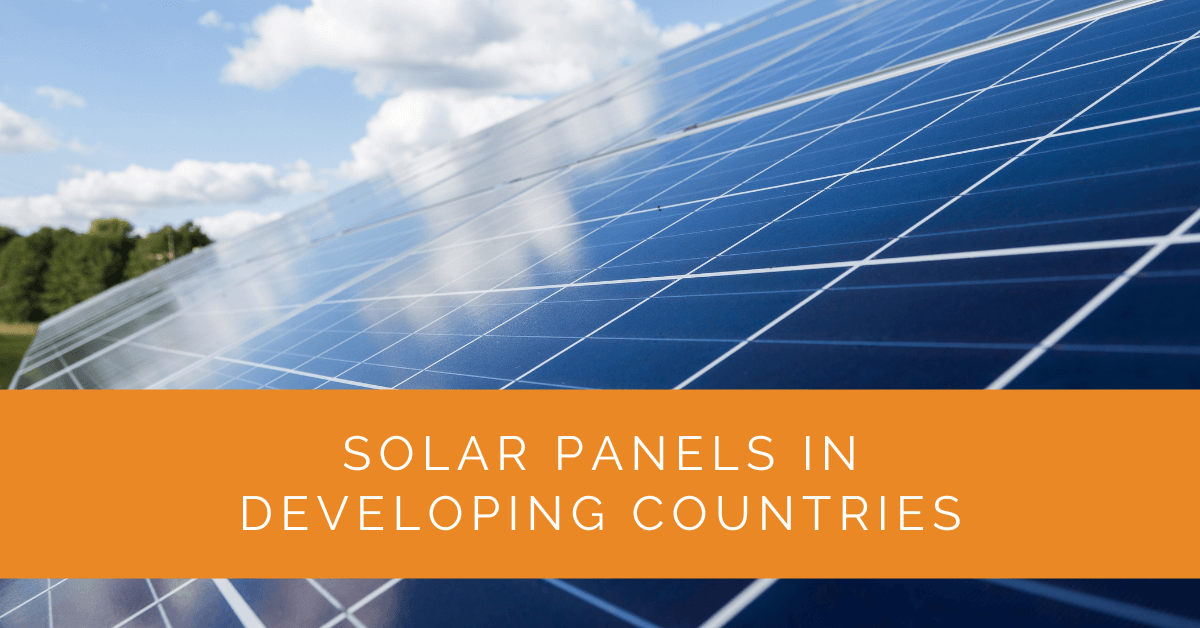In developing countries, access to reliable and affordable energy is crucial for economic growth, education, healthcare, and overall quality of life. However, many communities face challenges in accessing electricity through traditional means. This article explores the role of solar panels in addressing energy challenges, providing clean and sustainable power to empower communities in developing countries.
Contents
- 1 Kew Takeaways
- 2 Energy Landscape in Developing Countries
- 3 Solar Power Applications in Developing Countries
- 4 Overcoming Challenges and Ensuring Sustainability
- 5 Case Studies: Solar Power in Developing Countries
- 6 Expert Insights From Our Solar Panel Installers About Solar Panels in Developing Countries
- 7 Experience Solar Excellence with Us!
- 8 Conclusion
Kew Takeaways
- Solar panels are a transformative solution for addressing energy challenges in developing countries, providing clean and reliable power to empower communities and improve quality of life.
- Solar power applications, such as solar water pumping, off-grid systems, and solar-powered microgrids, are vital in bringing electricity access to remote areas and stimulating economic growth.
- Overcoming challenges and ensuring the sustainability of solar projects require financial and policy support, local capacity building, and tailoring solutions to local contexts, fostering community engagement and long-term success.
Energy Landscape in Developing Countries
Challenges in Access to Reliable Electricity
Access to reliable electricity remains a pressing challenge in many developing countries, impacting various aspects of life, including economic growth, education, healthcare, and overall quality of life. The lack of infrastructure and the unreliability of conventional power sources limit progress and hinder the potential for development. Millions of people, especially those in rural and remote areas, continue to live without electricity or rely on expensive and inefficient alternatives such as kerosene lamps or diesel generators.
The Potential of Solar Power in Developing Countries
Solar power emerges as a beacon of hope and a transformative solution to these challenges. Solar energy, being renewable and abundantly available, holds immense potential for meeting the energy needs of developing countries. Solar photovoltaic (PV) technology, in particular, allows for decentralized power generation, making it a suitable choice for off-grid areas and regions with limited infrastructure. By harnessing the sun’s power, solar power offers clean and sustainable energy access, reducing dependence on fossil fuels and mitigating environmental impacts such as greenhouse gas emissions.
Solar Power Applications in Developing Countries
Solar Water Pumping
One significant solar power application in developing countries is solar water pumping systems. Access to clean and reliable water is crucial for communities’ well-being, agriculture, and economic activities. However, many regions lack access to safe water due to remote locations or unreliable power supplies. Solar-powered water pumping systems provide an ideal solution to address this challenge. By utilizing solar energy to power water pumps, these systems eliminate the need for manual labor or reliance on fossil fuel-powered pumps. They offer a sustainable and reliable water source for irrigation, livestock, and domestic use, significantly improving sanitation, agricultural productivity, and community well-being.
Off-Grid Solar Systems
Off-grid solar systems have emerged as a game-changer in electrifying homes and communities without access to the power grid. These systems, consisting of solar panels, batteries, and inverters, enable the generation and storage of electricity for use during non-sunlight hours. By leveraging solar power, off-grid solar solutions bring clean and reliable energy access to households, empowering families with a wide range of benefits. Solar power transforms lives and enables economic opportunities, from lighting up homes and schools to charging electronic devices and running basic appliances. Off-grid solar systems provide a stepping stone toward achieving universal access to electricity and bridging the energy divide in developing countries.
Solar-Powered Microgrids
Solar-powered microgrids have emerged as a community-level solution for reliable and sustainable electricity supply in many remote areas without access to the power grid. These small-scale power systems integrate solar panels, battery storage, and smart distribution systems. By generating and managing electricity locally, solar-powered microgrids bring energy access to multiple households, schools, healthcare centers, and local businesses. The transformative impact of solar-powered microgrids goes beyond mere electrification. They stimulate economic growth, create job opportunities, improve education and healthcare services, and enhance communities’ overall quality of life. With solar-powered microgrids, communities can enjoy the benefits of electricity and unlock their full potential for social and economic development.

Overcoming Challenges and Ensuring Sustainability
Financial and Policy Support
Financial incentives, subsidies, and supportive policies are crucial to accelerating solar power deployment in developing countries. International organizations, governments, and NGOs play a significant role in providing financial support, technical assistance, and capacity-building programs to promote the adoption of solar energy solutions. These stakeholders empower communities and organizations to invest in solar power projects by facilitating access to funding and offering favorable policy environments. Financial support can help offset the initial costs of solar installations, making them more affordable and accessible to communities with limited resources. Supportive policies, such as feed-in tariffs or net metering, can incentivize the adoption of solar power by ensuring fair compensation for excess energy generation and facilitating grid integration.
Local Capacity Building and Training
Local capacity building and training are vital for solar power initiatives to thrive and be sustainable in developing countries. These programs provide local communities, technicians, and entrepreneurs with the knowledge and skills to install, operate, and maintain solar systems. By empowering communities through training, they become active participants in the energy transition, fostering local ownership and promoting the long-term sustainability of solar projects. The local capacity building creates job opportunities and ensures that solar installations are properly maintained and operated, maximizing their lifespan and overall performance.
Tailoring Solutions to Local Contexts
Successful solar power projects in developing countries require solutions tailored to local contexts. It is essential to consider environmental conditions, social dynamics, and cultural practices when designing and implementing solar initiatives. Engaging with local communities and involving them in decision-making ensures that solar solutions meet their specific needs and priorities. By incorporating local knowledge and expertise, solar projects become more effective, sustainable, and embraced by the communities they aim to serve.
Furthermore, customization includes understanding each region’s unique energy requirements and challenges. For example, solar systems with battery storage capabilities can provide a reliable and uninterrupted power supply during emergencies in areas prone to natural disasters or frequent grid outages. By tailoring solutions to address specific challenges, solar power can offer the most suitable and effective electrification in diverse and dynamic developing country contexts.

Case Studies: Solar Power in Developing Countries
To showcase the impact of solar power in developing countries, let’s explore a real-life case study:
Solar Power Electrification in Kenya
Kenya is a prime example of how solar power transforms communities in developing countries. With a significant portion of the population lacking access to electricity, the government and international organizations have embraced solar energy as a sustainable solution. The World Bank has played a crucial role in supporting solar power projects, aiming to achieve universal access to electricity.
One successful initiative is the installation of home solar systems in rural areas. Through affordable financing options and partnerships with local communities, households can now access solar power. These systems typically include solar panels, batteries for energy storage, and efficient appliances such as LED lights and phone chargers. Families can enjoy reliable electricity for lighting, powering electronic devices, and even running small businesses, improving livelihoods and fostering economic growth.
Another significant development in Kenya is the implementation of solar-powered water pumping systems. Solar water pumps have replaced diesel or manual pumps in regions with limited access to clean water. These solar-powered pumps provide communities with a sustainable and reliable water source for irrigation, livestock, and domestic use. This improves access to clean water and reduces reliance on traditional and environmentally harmful water extraction methods.
The success of solar power electrification in Kenya extends beyond individual households. Solar-powered microgrids have been established in remote villages, connecting multiple households and public facilities to a decentralized energy system. These microgrids ensure continuous and affordable power supply to schools, health centers, and local businesses, improving education, healthcare, and economic opportunities.
The impact of solar power in Kenya is profound. Beyond the immediate benefits of access to electricity, solar solutions reduce dependence on expensive and polluting fossil fuels. They contribute to a cleaner and healthier environment, reducing indoor air pollution and mitigating greenhouse gas emissions. Additionally, the adoption of solar power stimulates local entrepreneurship and job creation in the renewable energy sector.
Expert Insights From Our Solar Panel Installers About Solar Panels in Developing Countries
Solar panels are revolutionizing energy access in developing countries. By providing a reliable and renewable power source, they enable communities to thrive, boosting economic activities, improving healthcare, and enhancing education. It’s incredible to see the transformation firsthand.
Chief Solar Technician
The implementation of solar water pumping systems is a game-changer for many remote areas. These systems not only ensure access to clean water but also support agriculture and livestock, which are essential for community livelihoods. This sustainable solution replaces the need for costly and polluting diesel pumps.
Senior Solar Project Manager
Off-grid solar systems and solar-powered microgrids are pivotal in bridging the energy gap in remote and rural areas. These solutions provide consistent and affordable electricity, empowering households and local businesses, and fostering social and economic development. Tailoring these systems to local needs ensures long-term success and community ownership.
Solar Energy Consultant
Experience Solar Excellence with Us!
Trust in Solar Panels Network USA, where our seasoned experts deliver top-quality solar solutions for homes and businesses nationwide. With a legacy of countless successful installations and a commitment to sustainable energy, we’re your reliable partner in the solar journey. Ready for a brighter, eco-friendly future? Call us now at (855) 427-0058 and harness the power of the sun!
Conclusion
Solar panels significantly impact developing countries by providing access to clean, reliable, and sustainable energy. The potential of solar power to transform communities is evident through initiatives such as home solar systems, solar water pumping, and solar-powered microgrids. Overcoming challenges through financial support, local capacity building, and customized solutions are crucial for the successful implementation of solar projects.
As more developing countries embrace solar power, the benefits of electrification extend beyond powering homes and businesses. Solar energy contributes to economic development, improves education and healthcare, and reduces environmental impact. By harnessing the sun’s power, we can create a brighter future for communities worldwide, ensuring access to electricity and unlocking opportunities for a sustainable and equitable world.
About the Author
Solar Panels Network USA stands at the forefront of solar energy solutions, driven by a team of seasoned solar engineers and energy consultants. With over decades of experience in delivering high-quality solar installations and maintenance, we are committed to promoting sustainable energy through customer-centric, tailored solutions. Our articles reflect this commitment, crafted collaboratively by experts to provide accurate, up-to-date insights into solar technology, ensuring our readers are well-informed and empowered in their solar energy decisions.

